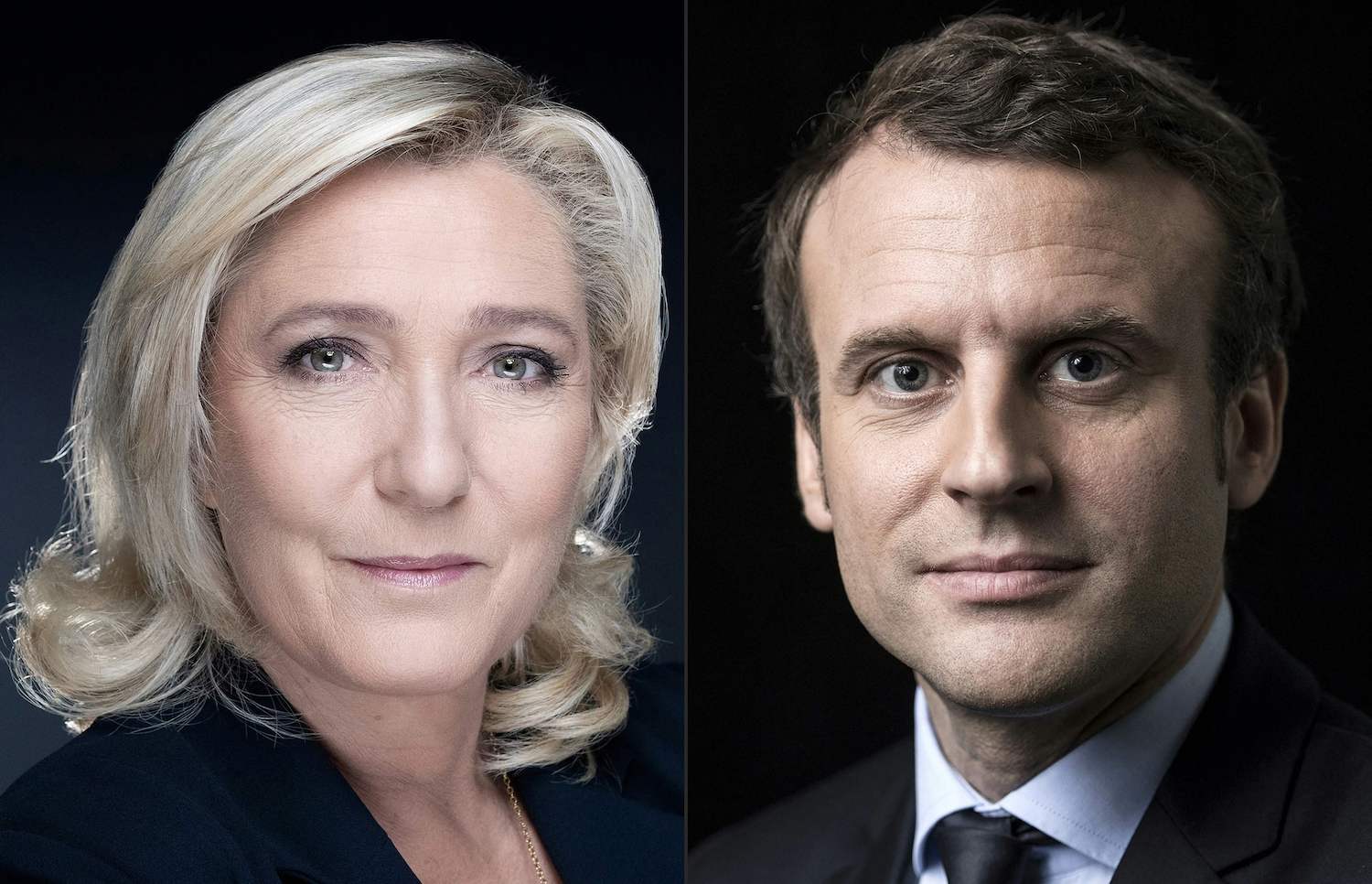
PARIS: French leader Emmanuel Macron and his strongest challenger Marine Le Pen qualified on Sunday for a presidential election runoff on April 24, pitting a pro-European economic liberal against a far-right nationalist.
With projections putting Macron in first place ahead of Le Pen after Sunday’s first round voting, other major candidates admitted defeat. Except for another far-right candidate, Eric Zemmour, they all urged voters to back the incumbent in two weeks’ time in order to block the far-right.
Ifop pollsters predicted a tight runoff, with 51 percent for Macron and 49 percent for Le Pen. In 2017, he won with 66.1 percent of the votes.
Le Pen, who had eaten into the president’s once-commanding 10-point poll lead in recent weeks, said she was the one to protect the weak and unite a nation tired of its elite.
“I intend without waiting to sew back up the tears that a torn-apart France suffers,” she told supporters, who chanted: “We will win!” The runoff “will be a choice of civilization,” Le Pen added on stage in Paris.
Macron garnered 28.1-29.5 percent of votes in the first round while Le Pen won 23.3-24.4 percent, according to estimates by pollsters Ifop, OpinionWay, Elabe and Ipsos, which are usually reliable.
Official confirmation was expected later on Sunday.
Conservative candidate Valerie Pecresse warned of “disastrous consequences” if Macron lost, while the Socialists’ Anne Hidalgo urged supporters to vote for him “so that France does not fall into hatred.”
“Not one vote for Le Pen!” added hard-left candidate Jean-Luc Melenchon, who, according to the estimates, placed third with around 20 percent of the votes.
In a sign of potential troubles for the right, Eric Ciotti, from Pecresse’s party, said he would not back Macron.
Zemmour acknowledged disagreements with Le Pen, but said Macron was a worse choice.
Macron wants rare second term
Not for two decades has a French president won a second term.
Barely a month ago, Macron was on course to comfortably reverse that, riding high in polls thanks to strong economic growth, a fragmented opposition and his statesman role in trying to avert war in Ukraine on Europe’s eastern flank.
But he paid a price for late entry into the campaign during which he eschewed market walkabouts in provincial France in favor of a single big rally outside Paris. A plan to make people work longer also proved unpopular, enabling Le Pen to narrow the gap.
Le Pen, an open admirer of Russian President Vladimir Putin until his invasion of Ukraine, had for months toured towns and villages across France. She focused on cost-of-living issues troubling millions and tapped into anger toward rulers.
“Marine Le Pen knew how to talk to people about their more concrete problems. During the next two weeks he (Macron) will have to pay more attention to what is happening in France, take a diplomatic break,” said Adrien Thierry, a 23-year old supporter.
A Le Pen victory on April 24 would be a similar jolt to the establishment as Britain’s Brexit vote to leave the European Union (EU) or Donald Trump’s 2017 entry into the White House.
The EU’s second largest economy would lurch from being a driving force for European integration to being led by a euro-skeptic who is also suspicious of the NATO military alliance.
While Le Pen has ditched past ambitions for a “Frexit” or to haul France out of the euro zone’s single currency, she envisages the EU as a mere alliance of sovereign states.
France votes with Macron seeking new term in tight election
Source: Viral Real Articles

0 Mga Komento